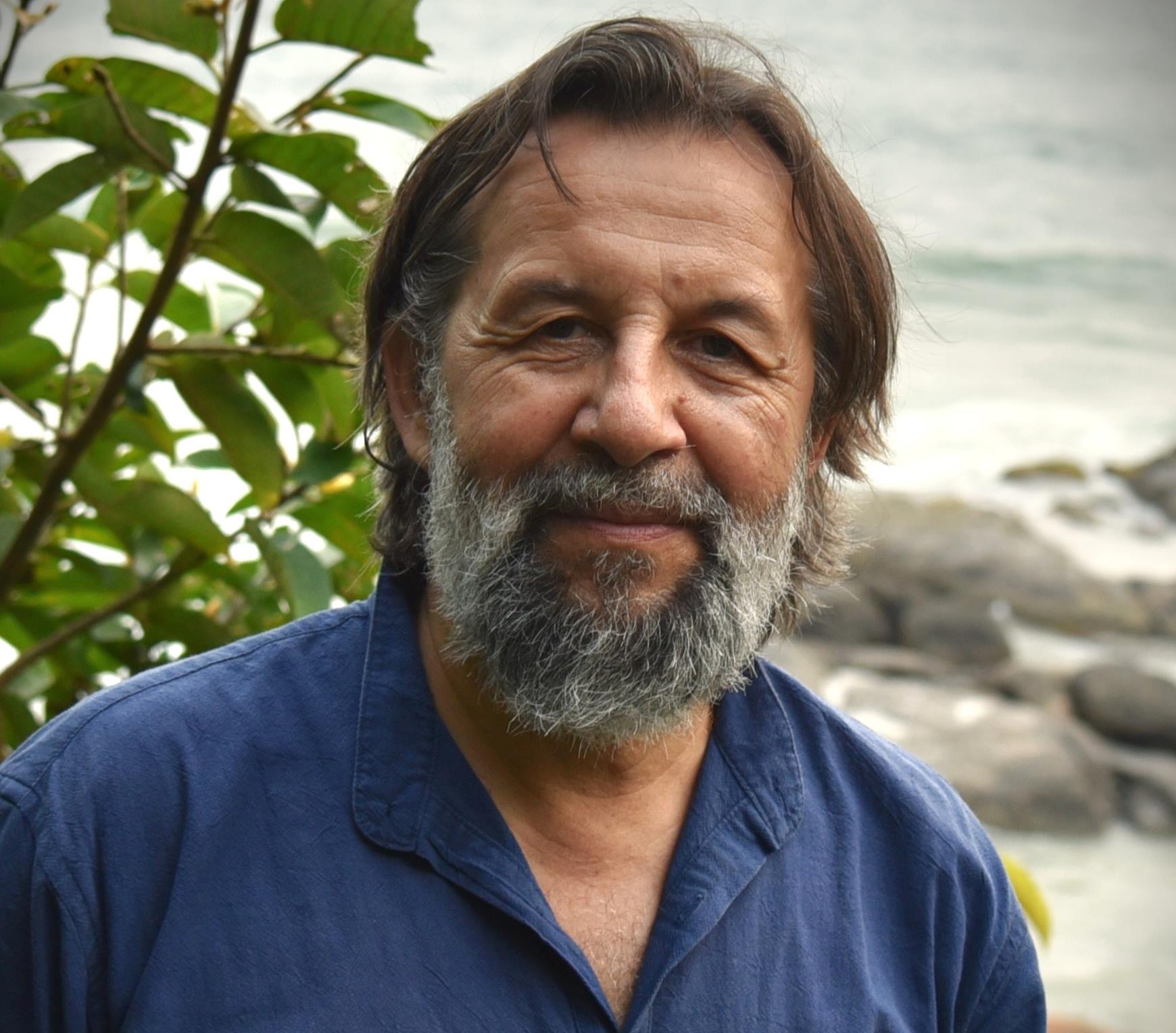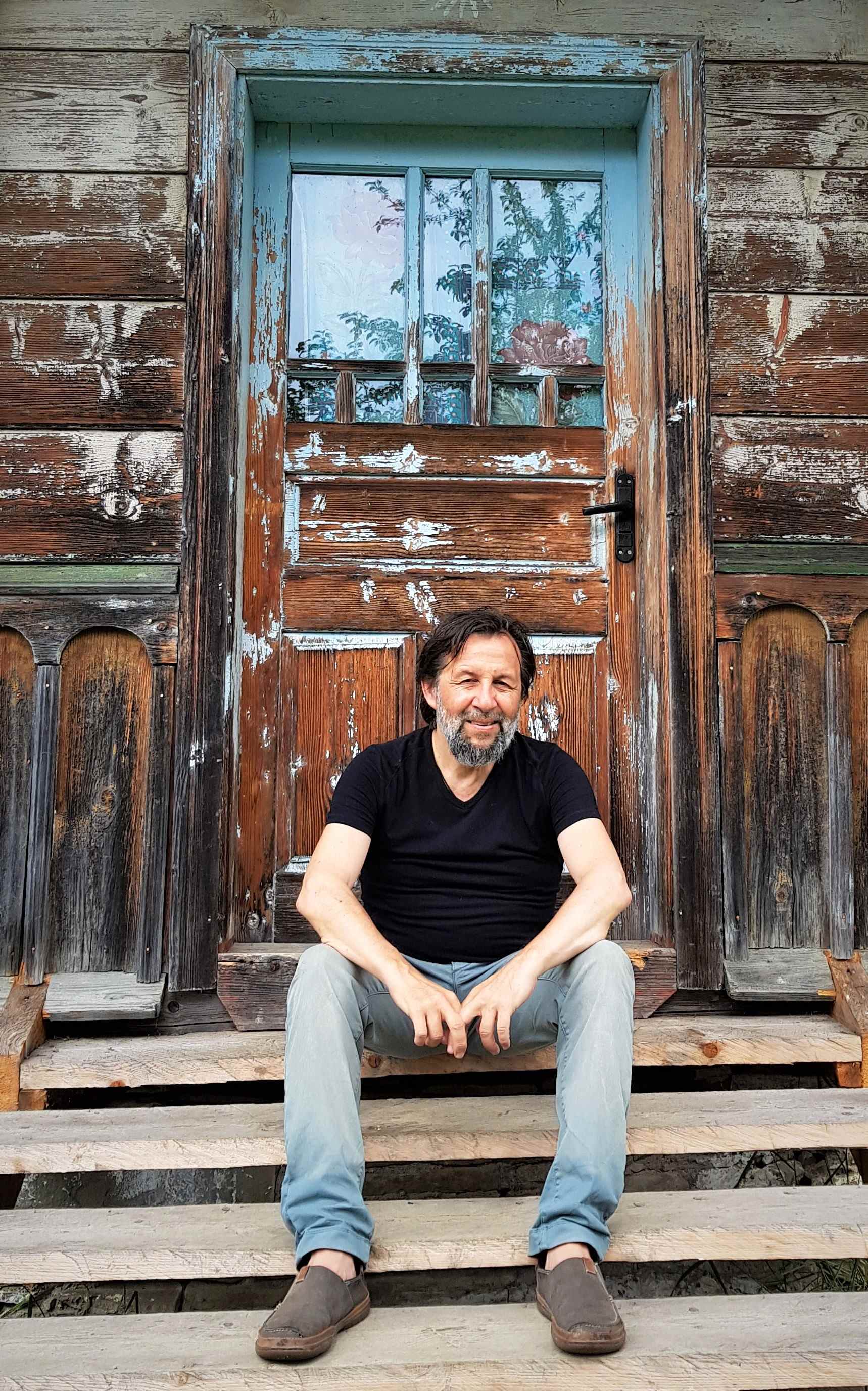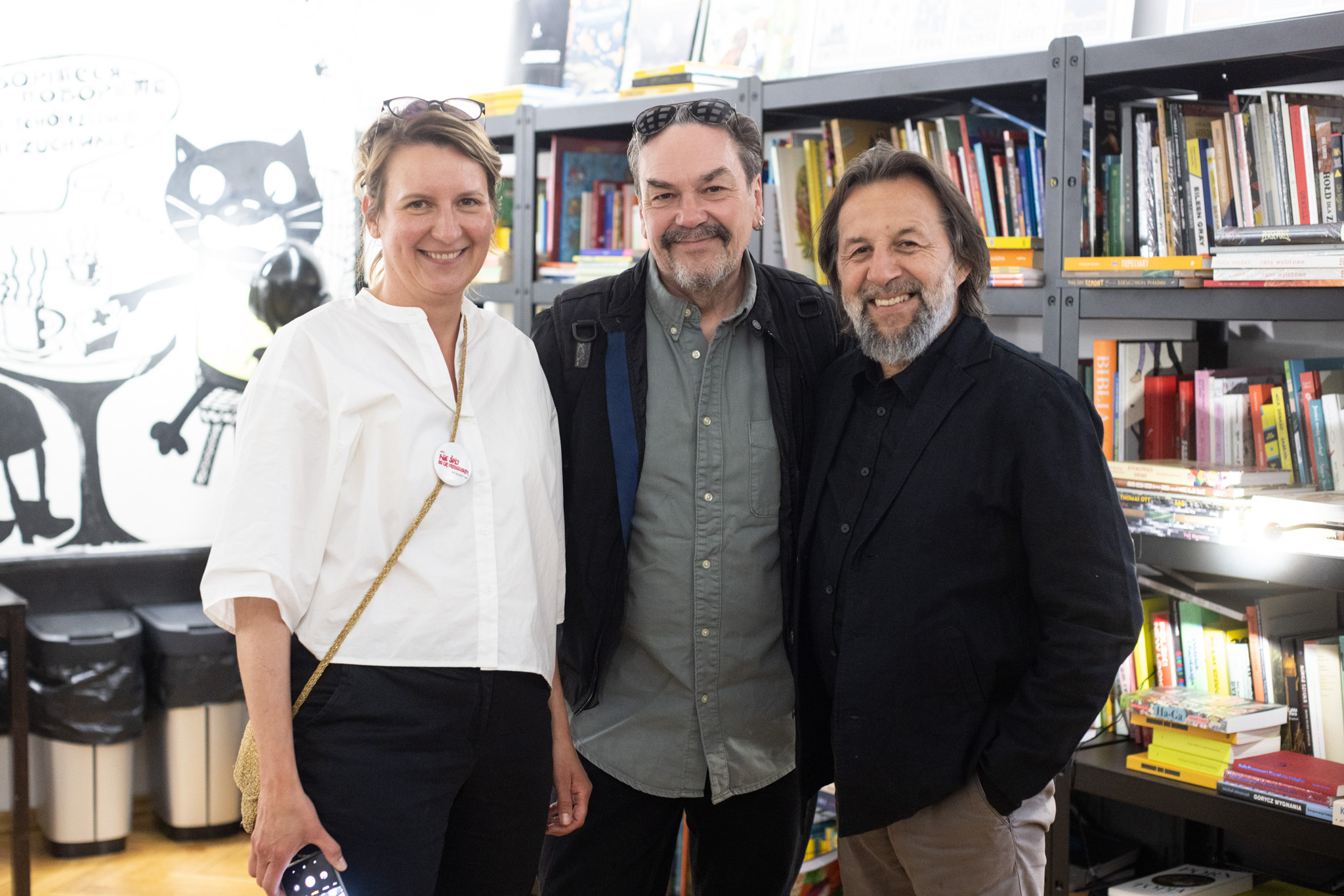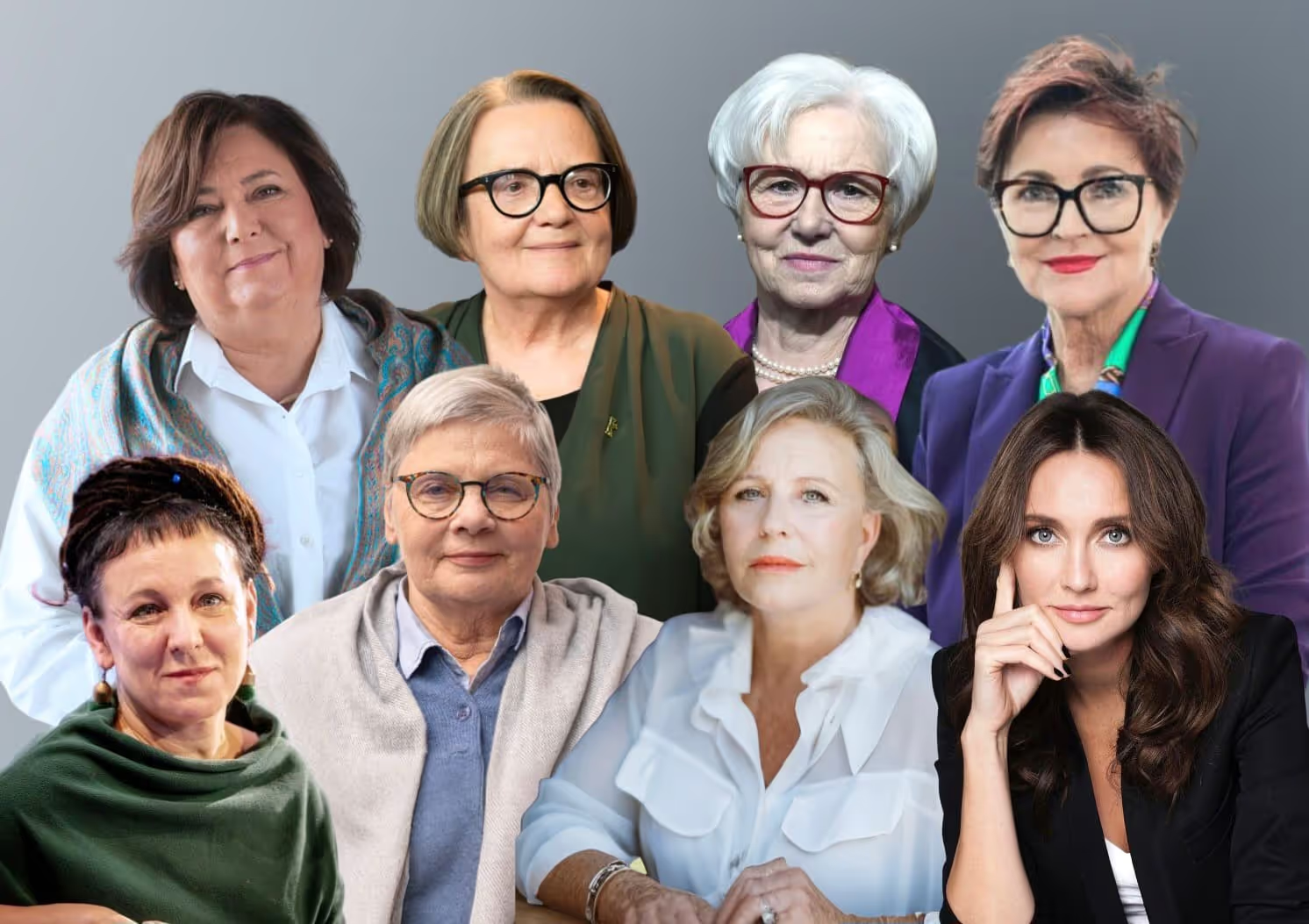Support Sestry
Even a small contribution to real journalism helps strengthen democracy. Join us, and together we will tell the world the inspiring stories of people fighting for freedom!
Joanna Mosiej: I would like to begin our conversation with your family history, because on many levels it serves as a metaphor for our Polish-Ukrainian relations. I am referring to your ancestors, the Szeptycki brothers. Roman (Andrey Sheptytsky - head of the Ukrainian Greek Catholic Church, Metropolitan of Galicia, Archbishop of Lviv (1901–1944) - Edit.) converted to the Greek Catholic faith, entered a monastery, and later became Metropolitan. Another brother, Stanisław, first served in the Austrian army, and after the war became a general in the Polish army. Both were patriots, individuals deeply devoted to the countries they served. And they maintained a fraternal bond.
Professor Andrzej Szeptycki: Of the five Szeptycki brothers, two identified themselves as Ukrainians - Metropolitan Andrey Sheptytsky and Blessed Father Klymentiy - and three were Poles. I am referring to General Stanisław Szeptycki and also his brothers, Aleksander and my great-grandfather Leon. Metropolitan Andrey and Father Klymentiy regularly came on holiday to rest at the family home in Prylbichi in the Yavoriv district, where my great-grandfather Leon Szeptycki later lived. Despite their national differences, they maintained good relations with each other until the end of their lives.

They proved to us that different national identities can coexist without excluding one another.
I believe it was also very important that in the case of each of them, national identity was a significant element of life, but not the only one. In the case of Metropolitan Andrey and Father Klymentiy, their vocation and religious choices were primary as clergy. General Stanisław Szeptycki, as a soldier of that time, first served in the Austro-Hungarian and then in the Polish army and sought to serve his country well. They were certainly patriots - of each nation with which they identified. On the other hand, it is very important that they were certainly not nationalists. And this allowed them to respect different views while remaining close to one another.
Was such a legacy, a borderland identity, a value or a curse for your family? How does it define you?
During the communist period, it was somewhat of a challenge, a burden. The communist authorities viewed representatives of the former noble class negatively. In the case of the Szeptycki family, this was further combined with a very strong propaganda narrative directed against Ukrainians in Poland. And, of course, directed personally against Metropolitan Andrey, who was portrayed as a Ukrainian nationalist and spiritual father of the Ukrainian Insurgent Army. During the communist period, and even in the 1990s, relatives quite regularly heard that Szeptycki is a Banderite». Nowadays, this has practically disappeared. I experienced this myself in 2023 when I was running an election campaign. The few voter reactions to my name were generally positive. In this sense, it is a significant change.
Apart from comments on social media, of course.
Yes, there I am often called Szeptycki - a Ukrainian, a Banderite. And surely there is a portion of society that will always react in this way. Returning to how it defines me, ever since our student years, my cousins and I have quite often travelled around Ukraine.
Some of us needed only one trip, while others stayed longer, for life. My cousin moved to Lviv a few years ago at the age of 50. Another cousin established the Szeptycki Family Foundation, which became actively involved in supporting Ukraine after February 24th 2022.

How do you explain this outburst of solidarity among us in 2022?
I believe there are three important factors. Firstly, the simple human need to help. Altruism which arises when we witness the suffering of others and react without much consideration.
Secondly, the shared experience of Russian imperialism. This has always resonated with Polish society. It is worth recalling the Polish response to the war in Chechnya - the reception of refugees, the clear sympathies. Or the year 2008 and the war in Georgia. Poland does not have strong cultural or geographical ties with Georgia, yet the reaction was vivid. We remember President Lech Kaczyński’s visit to Tbilisi and his prophetic words: today Georgia, tomorrow Ukraine, the day after, perhaps the Baltic states, and then Poland. But most importantly - and in my opinion decisively - is the fact that none of this arose in a vacuum. This solidarity did not suddenly sprout in a desert, but on rather fertile ground which Poles and Ukrainians had been cultivating together over the past three decades.
From the 1990s, both sides carried out considerable work to develop interpersonal contacts. In 2022, many Poles were not helping «refugees». We were, for the most part, simply helping friends
Keeping in mind the great importance of the prior presence of Ukrainian refugees who had arrived in Poland since 2014, economic migrants from Ukraine, and the Ukrainian minority, primarily descendants of the victims of Operation Vistula.
Of course. Since the beginning of the war, that is, since 2014, or even since 2004, the Ukrainian minority in Poland has played an important role in supporting Ukraine - collecting funds, purchasing equipment, sending that equipment to the frontline. And receiving Ukrainian military refugees after February 24th 2022. Undoubtedly, the role of this community cannot be overestimated.
Precisely. You have been researching Polish-Ukrainian relations for many years. How have they changed? How has the Poles’ perception of Ukrainians changed?
It has been a long process. From the establishment of mutual contacts in the 1990s, through the Orange Revolution, the Revolution of Dignity - up to 2022. And, on the other hand, through the long-term presence in Poland of a significant group of economic migrants from Ukraine. Let us not forget that none of this would have been possible without the consistency of Poland’s Eastern policy and the legacy of the thought of the Paris-based «Kultura» and Jerzy Giedroyc personally. This belief in the importance of Ukraine, the importance of good relations, the necessity of support.
We were the first country to recognise Ukraine’s independence.
And it is worth mentioning a very important, albeit little-known, moment in Polish-Ukrainian relations on the eve of the USSR’s collapse, namely the participation of the Polish delegation of civic committees in the 1st Congress of the People’s Movement in Kyiv in 1989. The presence of representatives of the Polish civic committees, including Adam Michnik and Bogdan Borusewicz, was a symbolic gesture of support for Ukraine from Polish «Solidarity» at a time when Poland was still part of the Warsaw Pact and Ukraine still within the USSR.

And what were the subsequent milestones of our cooperation?
First and foremost, the three key events of the past two decades, which I have already mentioned: the Orange Revolution, the Revolution of Dignity, and the full-scale Russian invasion in 2022. Each of these was met in Poland with clear public interest and a broad response of solidarity.
A sense of shared destiny, the legacy of Solidarity and the struggle for independence played an important role. At times, analogies were even drawn: it was said that Ukrainians in 2022 found themselves in a situation similar to that faced by Poles during the Second World War. The exhibition «Warsaw - Mariupol: cities of ruins, cities of struggle, cities of hope» was one such attempt to draw this symbolic parallel: cities levelled to the ground, the suffering of civilians, resistance. But it was also accompanied by another, no less important conviction: that Ukrainians today are facing something we, fortunately, are not experiencing - a classic violent conflict with Russian imperialism. And this solidarity manifested itself in Polish assistance.
What can we do to ensure this unprecedented solidarity seen in 2022 is not wasted? Today, in addition to the demons of the past, such as Volyn’ and the issue of exhumations, there are pressing social and economic problems.
Firstly, it is important to realise that no surge of solidarity lasts forever. The enthusiasm for Ukrainians that erupted after the beginning of the Russian invasion has gradually waned, and we are now in a phase where tension and fatigue are beginning to accumulate.
For most of its recent history, Poland has been a country of emigration - people left in search of work, bread, a better life. The issue of immigration was virtually absent from public debate. Today, the situation has changed. Around two million Ukrainians live in Poland - both economic migrants and people who fled the war. This is an entirely new social reality and a challenge to which we must respond consciously. Other challenges, including economic ones, must also be taken into account.
The pandemic, war and inflation - all of these influence the public sentiment. When people start running out of money, their willingness to show solidarity with «new neighbours» may weaken
Especially since they are constantly exposed to populist narratives claiming that immigrants take away our social benefits and our places in the queue for doctors. And that Ukraine does not agree to exhumations.
Yes, this is precisely why Polish-Ukrainian relations are no longer merely a matter of the past, but one of the key challenges for the future of Central and Eastern Europe. It is therefore important to defuse historical disputes, such as those concerning exhumations. It is very good that an agreement has recently been reached on this issue. Even if discussions on exhumations in the short term revive the Volyn’ issue, in the long term they will help resolve it. However, it is important to recognise - and I say this quite often to both Polish and Ukrainian partners - that at present, the key issue is not history. A major challenge lies in the broad economic matters related to Ukraine’s accession to the European Union.
We must recognise that Ukraine is not a failed state from which only unskilled workers or refugees come to Poland.
Despite the war, Ukraine has advantages in many areas that will pose a challenge to Poland when it joins the EU single market
Of course, Ukraine's accession to the EU is in Poland’s strategic interest. However, these are developments that we must be aware of, which we must closely observe and take action to prevent conflicts in these areas.
Therefore, at present, the real challenge is not the issue of the Volyn’ massacre, but rather how to adapt the common agricultural policy to the potential of Ukrainian agriculture. Naturally, it is also essential to prevent the escalation of social antagonism.

How does Polish-Ukrainian academic cooperation appear against this background?
Today, around 9% of students at Polish universities are international, almost half of whom are Ukrainian. The academic world, in line with its longstanding European tradition, is multinational. Universities have always been places of openness and tolerance; today, they develop programmes for support, equality and diversity. These are initiatives and responsibilities undertaken by the universities themselves.
Of course, there are always areas that can be improved. I am thinking, for example, of efforts to achieve better integration within the university. It often happens that we have two or three student communities living separately – students from Poland, English-speaking students and students from the East, mainly Ukrainians and Belarusians. We are working to ensure that these two or three communities come closer together.
You are responsible for international cooperation. In Ukraine, claims are heard that Poland is «draining» its intellectual capital. This is a well-known phenomenon here too - for years, it has been said that the best Polish academics leave for the West. What does this circulation between Poland and Ukraine look like?
Before February 24th 2022, around 500 Ukrainian academics worked in Polish universities. After the outbreak of war, this number doubled. Initially, there were special support measures - help with finding housing, work, a safe place - but quite quickly we realised that a change of perspective was needed.
Our goal is not a brain drain, but a brain circulation - a circulation of knowledge, ideas and experience
This is precisely why today, as a ministry, we support projects involving researchers and institutions from both countries. Those that build a joint research space.
A concrete example of such cooperation is the project of Vasyl Stefanyk Precarpathian National University in Ivano-Frankivsk, which, together with the Centre for East European Studies, rebuilt the pre-war university observatory «White Elephant» on Mount Pip Ivan. A functioning research station was created from ruins. Now the two universities are seeking funding for a telescope, the third stage of the project. This is an example of concrete cooperation based on partnership, not asymmetry.
Another example is Mykulychyn, a village in the Ukrainian Carpathians, where a Polish-Ukrainian youth meeting centre is being built. During my recent visit there, the first meeting took place with the participation of students from several Ukrainian universities and the University of Warsaw. It is in such places - in conversations, debates, joint projects - that the next generation of mutual understanding is born.
There is a real chance that this generation will get to know each other not through stereotypes, but through experience and culture.
Yes, but much work still lies ahead. I remember a study conducted, I believe, in 2021. Poles were asked which Ukrainian authors they knew, and Ukrainians were asked which Polish authors they knew. It turned out that 95% of Poles had never read a book by a Ukrainian author - and vice versa. What followed was even more interesting. Ukrainians associated Polish authors with Sienkiewicz and Sapkowski, while Poles named Gogol and Oksana Zabuzhko among Ukrainian authors. In terms of getting to know one another, including through culture, we still have much work to do.
But it is also important not to reduce each other to a kind of ethno-folklore, because we have much more to offer one another. We are united by common aspirations and hopes. And commonality does not always arise from similarity. It also arises from the desire to coexist despite differences and wounds.








